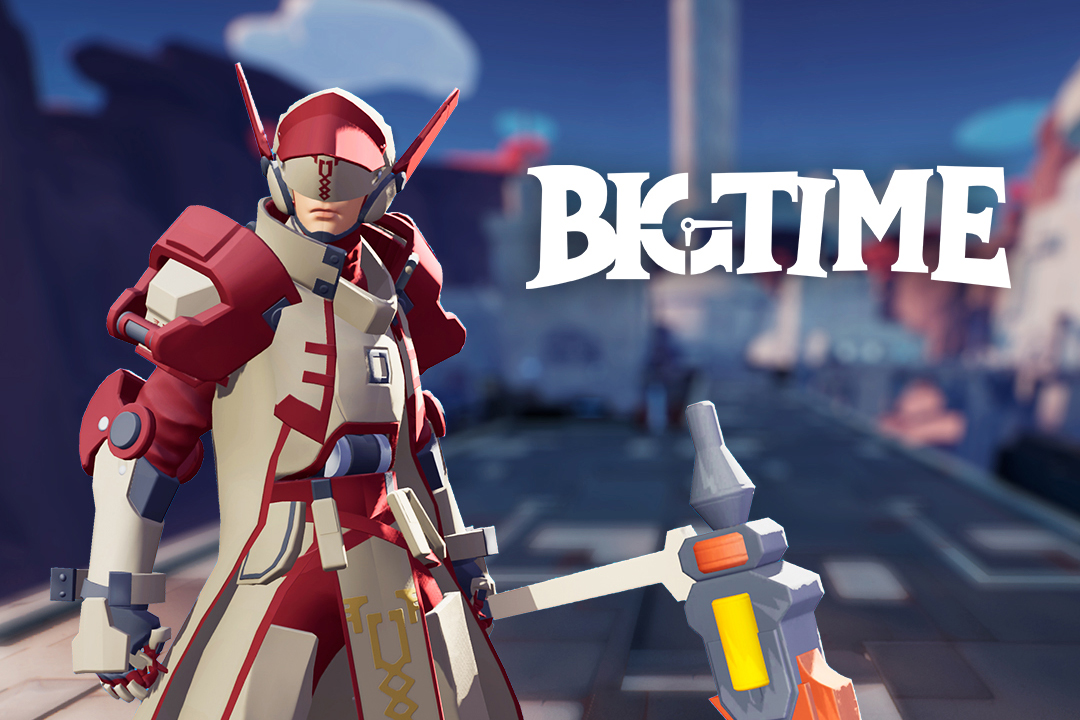For a brief moment in 2021, it looked like crypto had finally found its killer application: video games. The “play-to-earn" game Axie Infinity had notched millions of users, and platforms like Sandbox raked in venture funding. Perhaps the most promising of all was a much touted metaverse project out of Argentina called Decentraland, whose token—known as Mana—exploded a whopping 6,000%.
As the hype cycle for crypto gaming grew, one of Decentraland’s founders, Ari Meilich, set out to start his own title—an NFT-powered, multiplayer role-playing game called Big Time. The project raised $10.3 million from prominent crypto investors, enjoyed a successful test launch, and reportedly pulled in millions in profit. Then Meilich decided to invest in the crypto markets.
As filings from bankrupt Genesis reveal, Big Time plowed a large chunk of its capital not into growth, but into the high-risk crypto lender in hopes of making upwards of 5%. Its $20 million wager is now frozen, making it one of Genesis’s top creditors. Experts say Big Time’s bet was not only a highly unusual move for a game still in an early phase of development, but a reckless gamble that could imperil the future of the company.
Ari Meilich began developing Decentraland with Esteban Ordano in 2015 as part of a crypto-focused hacker house in Buenos Aires called Voltaire House, envisioning the metaverse platform as a kind of utopian alternative to the real-world economy.
In the ensuing years, gaming emerged as a potential conduit for crypto to enter the mainstream—players could partake in role-playing or first-person-shooter titles and be rewarded with tokens and NFTs, which developers said would offer gamers more control and autonomy.
Decentraland positioned itself as a crypto-powered version of the pioneering virtual world Second Life, letting players purchase virtual land and other items by means of the metaverse’s token, Mana. While it attracted only a relative handful of players, Decentraland was the first metaverse project to incorporate blockchain technology, which quickly made it a darling in the crypto industry. Over the course of 2021 and early 2022, Decentraland’s Mana token soared, while big brands poured in like Dolce & Gabbana and J.P. Morgan, which opened a virtual lounge in the platform in February 2022.
Because of Decentraland’s reputation, Meilich’s next project—Big Time—arrived with a torrent of hype at a time when crypto investors were salivating at the prospect of a Web3 game achieving mainstream adoption. While Axie Infinity had racked up an impressive number of players, the vast majority of them showed up in hopes of making money—most notably young workers in the Philippines and Vietnam who treated token farming as a full-time job. Big Time, however, promised to be the NFT-powered game that connected with real gamers.
Fortune obtained a pitch deck that Big Time circulated in December 2021 ahead of a planned Series B funding round. Big Time was in the early “alpha” stage of development, with the game accessible to players who bought NFT passes. As the overall NFT market soared, Big Time boasted impressive stats for a game still closed to the public, including $38.5 million in primary NFT sales and over 89,000 users.
The deck reveals that Big Time raised a $10 million Series A funding round in March 2021, with investors including Sam Bankman-Fried’s Alameda Research and Digital Currency Group, the parent company of Genesis. In the deck, Big Time also said that it was raising a $110 million Series B in January 2022.
That funding round never materialized, nor did Big Time’s growth continue.
According to data from Crunchbase, Big Time did not raise further funding after its $10.3 million Series A. And today, the game is still in closed alpha, accessible only to players holding NFT passes.
Ari Meilich did not respond to multiple requests for comment from Fortune.
Fortune also reached out to several of Big Time’s investors, including Ashton Kutcher’s Sound Ventures, North Island Ventures, and FBG Capital, but did not receive a response.
With the onset of “Crypto Winter” in 2022, the NFT market evaporated and overall trading volumes fell as much as 97%.
Because Big Time is still in closed alpha, analytics platforms like DappRadar do not yet track activity for many of the NFTs sold through Big Time’s private marketplace. Pedro Herrera, the head of research at DappRadar, said that once the game is live, players will start earning on-chain rewards through NFTs or tokens, which platforms will be able to track. Currently, the only way to track Big Time’s popularity is through public marketplaces like OpenSea and Binance, where Big Time sells the NFT passes that provide early access.
The total value of two Big Time collections for sale on OpenSea is 2,000 ETH, or around $3 million at today’s prices, but trading volume has been anemic over the past 90 days. One collection has only seen 64 sales, amounting to around $5,000, and sales of the other have been even more sluggish. Together, the two collections have fewer than 2,000 owners.
With the apparent drop-off in revenue, Big Time likely still had a sizable runway, thanks to profit realized during crypto’s boom cycle and the company’s Series A funding round. However, the Genesis filings reveal Big Time parked $20 million of its treasury on the now-bankrupt lending platform—an investment that is currently frozen.
A top crypto gaming venture capitalist, who spoke to Fortune on the condition of anonymity, described the move as “very strange, and very questionable.”
Before the collapse of fraudulent crypto projects TerraUSD and Three Arrows Capital last May, the VC—who had not invested in Big Time or Decentraland—said that it was popular for companies to put some of their treasury onto Genesis, as the platform was offering yields upwards of 5%.
Big Time was likely holding a high percentage of its treasury on Genesis when it halted withdrawals, which the gaming VC said would be a poor decision for any company. Big Time, however, was still building a game not yet open to the public, making the move even riskier. The VC said the money instead should have been going to hiring and other development. Although discussions between Genesis and creditors may free up the frozen funds in the coming weeks, it is currently inaccessible to investors.
Meilich, Big Time’s founder, was not alone among his Decentraland peers in trusting Genesis with their money. According to the bankruptcy filings, his cofounder, Esteban Ordano, had over $25 million on Genesis through a Panamanian company called Winah Securities. Current Decentraland CFO Santiago Esponda had over $55 million on Genesis through a different company called Heliva International Corp., headquartered at the same building as Winah in Panama City.
The Decentraland Foundation, the nonprofit that oversees the metaverse platform, revealed last week that it also had a credit against Genesis of almost $8 million. Like Big Time, Genesis’s parent company, Digital Currency Group, also happened to be an investor, as well as one of the biggest owners of virtual land.
With the circular flow of funding, the choice of name for Decentraland’s central square should not come as a surprise: Genesis Plaza.
This story was originally featured on Fortune.com
More from Fortune:
Olympic legend Usain Bolt lost $12 million in savings to a scam. Only $12,000 remains in his account
Meghan Markle’s real sin that the British public can’t forgive–and Americans can’t understand
‘It just doesn’t work.’ The world’s best restaurant is shutting down as its owner calls the modern fine dining model ‘unsustainable’
Bob Iger just put his foot down and told Disney employees to come back into the office
Two Titans made PFWA's 2022 All-Rookie Team.
TRON DAO reveals the government of the Eastern Caribbean island of St. Martin initiated the proposal of a law to designate TRON as the country’s blockchain infrastructure and TRON-based cryptocurre…
A new law in Indonesia not only changes the crypto regulatory environment, it could also broaden the industry’s development in the country.
BUSD’s circulating supply fell to $15.4 billion on Wednesday, paring down $1 billion over the past week and $2 billion in a month, according to cryptocurrency price tracker CoinGecko.
BMO Capital analyst Andrew Strelzik downgraded Bloomin’ Brands Inc (NASDAQ: BLMN) from Outperform to Market Perform and lowered the price target from $29 to $26. The analyst said BLMN is among several lower multiple casual dining stocks to meaningfully outperform thus far in 2023. Stronger shares coincide with acceleration in January foot traffic for BLMN and peers, though trends likely will normalize in the coming weeks, added the analyst. Foot traffic at Outback Steakhouse accelerated from 13%
(Bloomberg) — Bitcoin is flirting with its first back-to-back drop since the start of the year following a poor revenue outlook from technology bellwether Microsoft Corp. that dented wider investor sentiment.Most Read from BloombergHindenburg’s Short Sell Call Shaves $12 Billion Off Adani StocksUS Confronts China Over Companies’ Ties to Russia War EffortTech-Led Slide Fades; Tesla Whipsaws on Earnings: Markets WrapJosh Kushner Is Richer Than Trump After Billionaires Back His FirmIBM to Cut Abou
The partnership marks latest iteration of yearslong relationship between digital publisher and social-media giant.
Young-hee, the psychopathic doll from Squid Game, is out to claim more victims in a game of “Red Light Green Light.” On the first day of production for Netflix’s reality competition version of the popular K-drama, below-freezing temperatures had some contestants calling for medics on set.
Videogames are shaping up as the next content gold mine for movies and television. Sony will be a major beneficiary.
'The Last of Us' cast member Pedro Pascal shared a photo with his HBO Max co-star Nico Parker who played Sarah. See the actor's Instagram post that devastated fans.
No lie! Rian Johnson’s first original television series — Poker Face — is just the latest reason why you need to sign up for a Peacock account this very instant. With the first four episodes dropping tomorrow, critics are now allowed to speak freely on the show, which stars Natasha Lyonne (Russian Doll) as drifter and human lie detector, Charlie Cale. The glowing reviews agree that Ms. Cale’s habit of unintentionally stepping into homicide investigations everywhere she goes recalls the weekly wh
Sunday's episode of "The Last of Us" introduced the freaky, fungal zombies known as the Clickers. The stars and creators of the HBO show tell us more.
Twitter's reported blocking of links to a new BBC documentary on Modi is an early test of how Musk's social media platform will respond to global regulation.
Justin Bieber has sold his music rights to Hipgnosis Songs for over $200 million, the company has announced, which includes Bieber’s publishing shares.
Zoe Saldaña just surpassed her Avatar director's box office milestone.
Popular '70s TV and film actor Lance Kerwin died in southern California Tuesday, his family said. Kerwin, who worked on "Gunsmoke" and "Emergency!" was 62.
Here's how you can stream all 10 best picture nominees from the 2023 Oscars, including "Elvis," "The Banshees of Insherin" and more.
No other director has given Tom Hanks this piece of direction before.
Television provider DirecTV has dropped conservative channel Newsmax from its lineup after a dispute over carrier fees, a decision the network is calling an act of political censorship. DirecTV’s current contract with Newsmax expired on Tuesday evening, after the television provider said it was unwilling to agree to carrier fees proposed by the conservative channel.…
Liz Garbus opened up about the Palace's reaction to her Netflix docuseries on Prince Harry and Meghan Markle.


